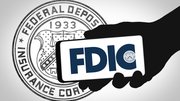News
Supreme Court refuses to hear ATM surcharge case
May 27, 2003
SAN FRANCISCO -- Efforts by two California cities to outlaw ATM fee surcharges ended with the Supreme Court's refusal to consider an appeal from San Francisco and Santa Monica.
Identical laws, enacted separately in 1999, were passed by a referendum in San Francisco and by a city council vote in Santa Monica.
U.S. District Judge Vaughn Walker blocked the ordinances from being enforced at the request of the California Bankers Association, Bank of America, Wells Fargo Bank and other financial institutions. (See related story Court strikes down California surcharge bans)
The U.S. Public Interest Research Group has estimated that ATM surcharges account for about $2 billion a year in revenue for all U.S. banks.
According to a report in the San Francisco Chronicle, which cited court papers connected with the lawsuit, BofA said its 188 San Francisco ATMs take in about $245,000 per month from the fees, while Wells Fargo said its 174 ATMs collect $210,000 monthly. If all BofA ATMs collect fees at similar rates, that would give the bank more than $200 million per year in annual revenue from the surcharge.
Last October, the 9th U.S. Circuit Court of Appeals upheld Walker's decision, saying the local laws were preempted by federal regulations. (See related story Santa Monica, San Francisco lose appeal on surcharge bans)
"We find that the ordinances are preempted by federal law and regulations and thus invalid," the appeals panel said in its opinion. The panel cited the National Banks Act, other federal laws and regulations issued by the U.S. Comptroller of the Currency, which regulates national banks and has said ATM surcharges are permissible.
The cities appealed to the Supreme Court, which refused on May 26, without comment, to hear the case.
Owen Martikan of the San Francisco city attorney's office said he wasn't surprised by the high court's reluctance to hear the case.
"`We felt Congress back in the mid-'90s had made clear they intended state and local governments to regulate in consumers' interest. ... The courts concluded differently.'
Martikan said the cities' only recourse is to lobby for federal legislation, which is unlikely. Instead, he recommended consumers educate themselves about how not to "fall prey to excessive fees."
"The decision today upholds the right of banks, like other businesses, to price products and services," said Harvey Radin, a San Francisco spokesman for Bank of America. "This is an optional service used by people who do not have a customer relationship with the financial institution that's providing the ATM service."
 ChatGPT
ChatGPT Grok
Grok Perplexity
Perplexity Claude
Claude












